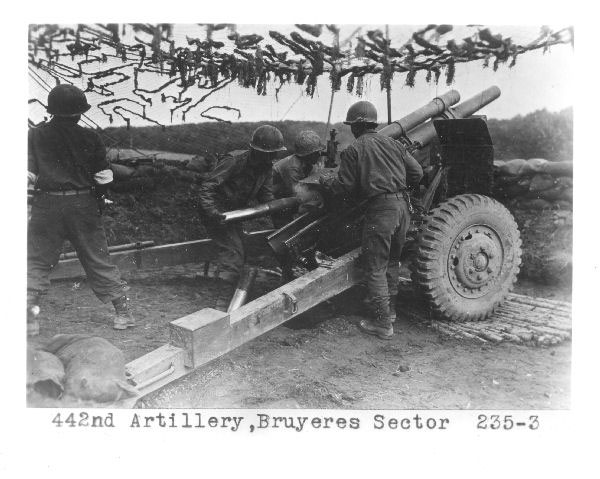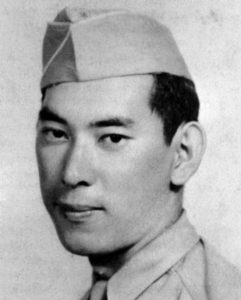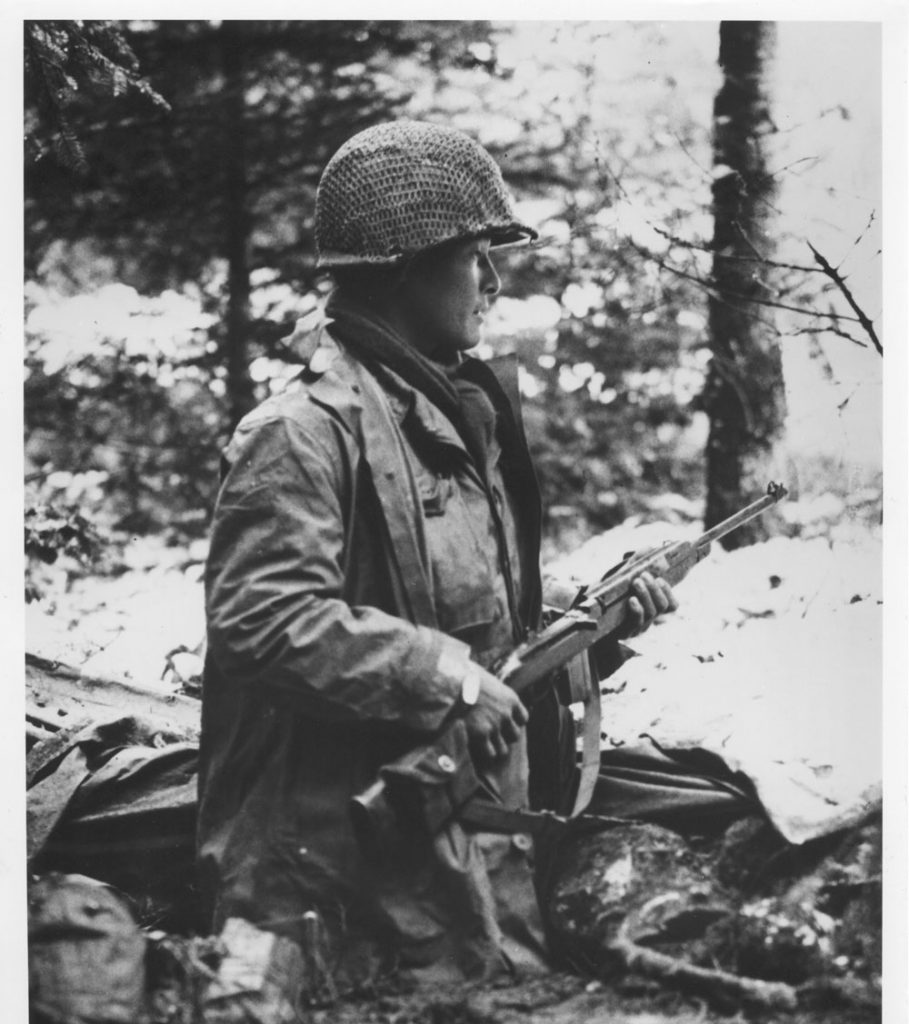ORAL HISTORY CLIPS
Susumu Satow [interview 243]
Starts on Tape Four, between 10 and 12 minute marks
SUSUMU SATOW:
We assembled in Marseille, and there we were shipped by train to Épinal, and from Épinal we went to the front lines for the Battle of Bruyères.
SATOW:
Well, Bruyères was a small railroad hub and it was very important to the Germans, and so there was a need for us to capture it and so that was our assignment. And so it took us about maybe two weeks, three weeks for us in combat to capture Bruyères, but we did that. And so today, if you go back to Bruyères, you know, where Japanese Americans are heroes there, and in fact, they got a museum in the center of town that tells a story of the Japanese American soldiers. It tells about the internment, how the 442nd was formed, and how we liberated Bruyères.
INTERVIEWER:
Can you, in your own personal words, describe to us this battle and whether it was—was it like hand-to-hand combat kind of battle or what? Can you describe it for us?
SATOW:
Well, it wasn’t hand-to-hand but Vosges Mountain was a forest, pine tree forest, and so there was shrubbery all over the place and we have to—we had to move forward to that, and so it’s pretty hard to tell where your enemies were. But—and also, the artillery shell that we were getting, hit a tree, we call it tree burst, and from that the shrapnels are showered down into the—toward the ground, and so a lot of casualties we had to suffer. And so this was all the way up to the township of Bruyères and it was a downhill, I remembered digging a hole there and looking down into Bruyères and I could see the streets and on the far end of town, I could see a German tank’s gun sticking out. So, there was enemy there and we had to fight for that.
James Matsumoto [interview 300]
Starts on Tape Six, between 12 and 16 minute marks
INTERVIEWER:
Now, I just want to step back a little bit further and—to Bruyères.
JAMES MATSUMOTO:
Bruyères, yes.
INTERVIEWER:
And you were talking about how heavy the fighting was there.
MATSUMOTO:
Yes.
INTERVIEWER:
And that this town was liberated.
MATSUMOTO:
Yes.
INTERVIEWER:
Can you describe some of the action that took place there?
MATSUMOTO:
Well, it was a little village set down in a little valley in a wooded area in the French Alps there. It was not too big, but we went in there and we really got attacked. I mean, the Germans were in there very strong and they had their best troops in there. So they—we fought door-to-door. Every house, we went in one house, out the other house, into the house, into . . . And, boy, it was really a battle, we really lost a lot of men. And when we was approaching that, there was already fighting, so the other troops were fighting in there. So we went in there and mopped it up. And there was so many people dead on the road there that they’re using a bulldozer to push ’em off the road so the trucks can get through. That really impressed that.
INTERVIEWER:
Was that troops from both sides?
MATSUMOTO:
Yes, both sides, yes.
INTERVIEWER:
The—after having liberated this town, what was the response of—by the townspeople to see these Asian troops?
MATSUMOTO:
I know. They thought Japan had invaded. [Laughs.] Yeah. They were very happy. They—I guess they put up a monument since then for the 442.
Takeichi Miyashiro [interview 123
]Starts on Tape Four, between 24 and 26 minute marks
TAKEICHI MIYASHIRO:
After that was Biffontaine. Biffontaine…the captain again told us to go – this time was there were – in Bruyères he told me to go to the right. Biffontaine he told me, “Take your platoon to the left.” But you know, one will say on the wooded area over there, they start shelling us too, you know under a mortar shell. But I observed over there, there was a half-track directly in front of us but, oh, further away, they could have fired [on] us if they saw us going attack in, gee, that machine gun know where to find – there’s something on the other side I don’t know. Maybe [???]. But anyway, I saw some Germans attacking, no I mean some Germans climbing the stairway into…going into one tank. So I told my men, yeah, “Let’s move to the right.” We went into the right. I didn’t lose any men yet.






